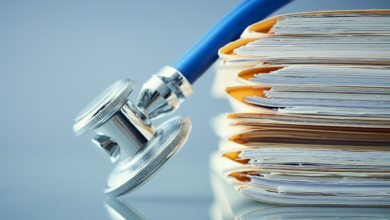How Does Eating Protein Build Muscle?

Your body needs a consistent flow of protein to carry out vital functions that ensure your survival and well-being. Proteins are essential for almost all biological processes, including growth, hormone synthesis, immune system control, and more.
With proteins accounting for 80% of muscle mass, they are the main building block of skeletal muscle. You need to eat a diet high in protein if you want to encourage muscle development and maintain a healthy level of muscle mass.
Eating Protein Build Muscle
Research indicates that individuals who consume higher amounts of protein than the current recommended dietary allowance (RDA) are better able to maintain and gain muscle mass while losing weight.
Here’s everything you need to know about consuming protein build muscle, including the reasons why it’s necessary for muscle building and some advice on how to increase your protein consumption.
Why Does Protein Matter for Muscle Growth?
Amino acids, also referred to as the “building blocks” of proteins, are found in protein. Your body converts proteins found in meals into amino acids, which are then used to create new proteins and other crucial substances like neurotransmitters.
Read More : Discover the Surprising Health Benefits of Rambutan: Natures Delicious Secret
Gaining muscular mass requires certain amino acids. For instance, the branched-chain amino acids valine, leucine, and isoleucine are particularly crucial for the upkeep and development of muscle.
Your body needs a steady supply of amino acids from meals high in protein to keep its muscle mass and stop it from breaking down. More protein is needed by those who want to gain muscle than by those who just want to maintain their current level of muscle.
The growth of muscle mass, or muscular hypertrophy, is only possible when there is a positive net protein balance, or when the amount of new muscle is greater than the amount of old muscle being broken down.
On the other hand, a negative protein balance which may happen when a person consumes an inadequate amount of protein causes muscular atrophy, or degeneration.
Resistance exercise combined with a high-protein diet is a good way to both stop muscle loss and encourage muscle growth.
How Much Protein Do You Need Per Day?
In order to satisfy your body’s needs, you must eat protein every day. Currently, the Recommended Dietary Allowance (RDA) for protein is 0.36 grams of protein per pound (g/lb) or 0.8 grams per kilogram (g/kg) of body weight.
The RDA is really the minimal quantity of protein required to fulfill the body’s amino acid needs and avoid muscle loss, despite the fact that it is sometimes regarded as the “ideal” protein build muscle consumption guideline.
The RDA is insufficient to fulfill the demands of active persons and those who want to gain more muscle, even if it may assist inactive people maintain their muscle mass.
In reality, studies indicate that in order to maintain a healthy level of muscle mass, physically active individuals, such as those who exercise often, should consume 1.2–2.0 grams of protein per kilogram (g/kg) or 0.54-0.9 grams per pound (g/lb) every day.
However, persons who are actively working to gain muscle mass need much more protein.
How Much Protein Do You Need to Build Muscle?
People who are physically active need more protein than the current RDA to maintain muscle mass, but those who desire to gain muscle have even greater protein requirements. Experts believe that persons who want to grow muscle should consume more than 2.0 g/kg of protein each day (0.9 g/lb).
For example, persons who want to enhance muscle development by combining increased protein consumption with resistance training should aim to consume 1.6 to 2.2 g/kg (0.72 to 1 g/lb) of protein per day.
People who want to retain or gain muscle while shedding body fat need even more protein, with some experts advising 2.3 to 3.1 g/kg (1 to 1.4 g/lb) per day.
Eating more protein-rich foods and include protein in all meals and snacks will help you increase your total protein consumption.
Though certain protein-rich meals and amino acids have been demonstrated to be particularly beneficial in promoting muscle building, most experts believe that your overall protein consumption is most important for muscle growth.
Animal proteins are classified as “complete” proteins because they include all nine of the necessary amino acids your body need to function, while most plant-based proteins are “incomplete” because they lack or are deficient in one or more key amino acids. This is why plant-based proteins are thought to have less muscle-building capacity than animal-derived proteins.
Furthermore, plant-based meals often contain less total protein per serving than animal foods and have poorer digestibility, which is why animal proteins are widely regarded as preferable for muscle protein synthesis.
However, it is totally feasible to grow muscle on a plant-based diet as long as a diversity of plant-based proteins are ingested and adequate supplementation is used.
Good Sources of Protein Build Muscle
Whether you adopt an omnivore or plant-based diet, there are several protein-rich foods to enjoy. Here are some of the top sources of protein you may consume:
Animal Proteins
- Eggs: 6.28 g per large egg
- Chicken breast: 31 g per small skinless chicken breast
- Canned salmon: 19.6 g per three-ounce serving
- Whey protein isolate: 25 g per ounce
- Cottage cheese: 23.5 g per cup
- Shrimp: 20.4g per three-ounce serving
- Greek yogurt: 19.9 g per seven-ounce serving
Plant-Based Proteins
- Tofu: 8.67 g per three-ounce serving
- Hemp seeds: 9.48 g per ounce
- Pea protein: 24 g per ounce
- Edamame: 18.5 g per cup
- Tempeh: 19.9 g per 100g serving
- Lentils: 17.9 g per cup
A diversified diet rich in plant and animal proteins is typically advised, although a plant-based diet has been linked to a variety of health advantages, including decreased incidence of heart disease and some malignancies.
However, if you adopt a vegetarian or vegan diet, you need incorporate a range of protein sources to ensure that you achieve your daily protein needs.
Tips for Consuming Protein for Muscle Growth
If you want to build muscle mass, here are a few evidence-based suggestions to follow.
For persons who wish to maintain their body weight while gaining muscle mass, experts suggest a daily protein consumption of 1.6 to 2.2 g/kg (0.72 to 1 g/lb).
People who are actively attempting to lose weight while preserving or developing muscle mass need significantly more protein per day, ranging from 2.3 to 3.1 g/kg (1 to 1.4 g/lb), since calorie restriction increases the risk of muscle loss.
Some experts suggest that protein-rich meals be spaced at least three hours apart to maximize muscle building. Furthermore, although overall protein consumption is most essential, current research indicates that supplementing with protein after resistance exercise may be the most effective way to promote protein build muscle development.
To enhance muscle building, most experts suggest consuming around 20 g of high-quality protein, such as whey protein, after resistance training.
Drinking a protein shake or eating a protein-rich snack or meal with around 20 g of protein after an exercise may help you achieve your body composition objectives.
Can You Have Too Much Protein?
Though it was long assumed that high-protein diets were bad for the kidneys, heart, and bones, research now demonstrates that healthy high-protein diets are typically safe for most individuals.
In fact, diets containing more than four times the RDA for protein have been demonstrated to be safe for physically active individuals. Though further study is required, there is presently no proof that high-protein diets are bad for your health.
In fact, high-protein diets have been demonstrated to improve body composition, bone health, and cardiovascular health.
However, diets heavy in particular protein types may have a deleterious influence on health and raise illness risk. Red and processed meat-rich diets, for example, have been related to colon cancer, heart disease, and a variety of other health hazards.
Furthermore, although high protein diets are not harmful for those with normal renal function, they may hasten kidney function deterioration in people with kidney disease.
While well-balanced high-protein diets are safe for most healthy individuals, it’s essential to remember that your protein requirements are determined by a variety of variables, including your body weight, age, and activity level, so it’s better to tailor your protein consumption to your unique needs and health objectives.
For example, whereas 1.2 to 2 g/kg (0.54 to 0.9 g/pound) of protein per day is generally enough for physically active adults aiming to maintain muscle mass, athletes and those who desire to gain muscle mass while shedding body fat may need significantly more protein.
If you’re unsure how much protein you should consume each day or how much protein you need to accomplish your body composition objectives, a competent healthcare practitioner, such as a registered dietitian, may assist you in designing a high-protein diet that is tailored to your unique requirements and goals.
Other Factors for Building Muscle
In addition to boosting your protein intake, strength exercise is essential for muscle mass development.
According to studies, resistance exercise enhances muscle protein turnover while also stimulating muscle protein synthesis. However, to minimize muscle breakdown and boost muscle protein synthesis after strength exercise, you must maintain a positive net protein balance by feeding your body protein-rich meals.
If you add weight exercise without consuming enough protein, you will not achieve your body composition objectives. This is why combining regular resistance training with a greater protein diet is critical for muscle mass development.
Read More : What Happens to Your Body When You Drink Green Tea Every Day
A study of 40 healthy older ex-military males discovered that those who participated in three weekly strength training sessions combined with a 1.6 g/kg per day high-protein diet gained significantly more muscle mass and muscle strength than men who followed the same strength training regimen while eating only 0.8 g/kg of protein per day.
If you’re new to strength training, consider introducing a few shorter sessions into your weekly exercise program. You may gradually increase the duration and intensity of your workouts as you gain strength.
Conclusion
If you want to increase muscle mass, increasing your protein consumption can help you achieve your body composition objectives.
Studies demonstrate that consuming more protein than the current RDA is an excellent approach to enhance muscle mass growth, particularly when combined with resistance training.
While high-protein diets are generally deemed acceptable for most healthy individuals, protein requirements vary greatly depending on variables such as activity level and body weight. Because everyone’s protein requirements vary, it’s important to create a diet that includes an adequate quantity of protein for your unique needs and health objectives.







